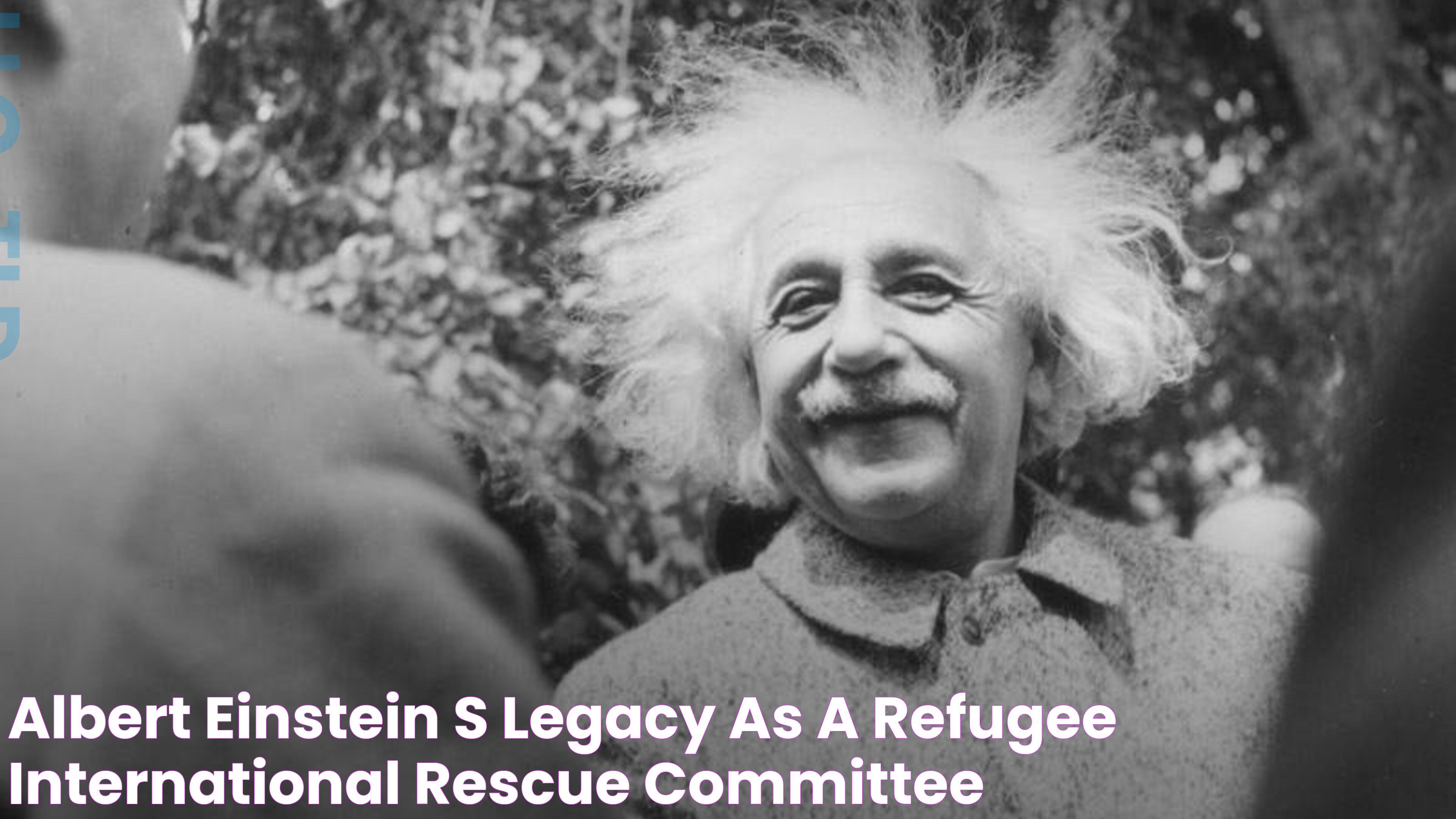Albert Einstein is celebrated globally for his groundbreaking contributions to science, but few delve into his financial standing and the legacy he left behind at his passing. Known for his unassuming lifestyle, Einstein's financial story is a fascinating mix of modesty, philanthropy, and prudence. His net worth, often overshadowed by his intellectual achievements, provides intriguing insights into how one of history's greatest minds navigated the world of wealth and economics.
Born in a middle-class family in 1879, Einstein's financial trajectory reflected his intellectual pursuits rather than a deliberate focus on wealth accumulation. Despite earning several lucrative opportunities during his lifetime, his choices frequently prioritized intellectual freedom and societal impact over financial gain. From his patent office job to his professorships and eventual fame, Einstein's financial decisions were deeply rooted in his values, emphasizing simplicity and generosity.
At the time of his passing in 1955, Albert Einstein's net worth stood as a testament to his unique approach to wealth. While he did not amass a fortune comparable to modern-day celebrities or inventors, his financial legacy was carefully managed and thoughtfully allocated to his family, charitable causes, and ongoing scientific endeavors. This article delves deep into Einstein's financial narrative, exploring the sources of his income, his philosophy toward money, and the enduring impact of his financial decisions on his heirs and society.
Read also:Usain Boltrsquos Residence Where Does Usain Bolt Live
Table of Contents
- Biography and Early Life
- Personal Details and Biography Data
- How Did Einstein Earn His Income?
- Einstein's Financial Philosophy and Lifestyle
- What Were Einstein's Major Sources of Income?
- Einstein's Patent Office Years: Financially Speaking
- How Did Einstein Handle His Fame?
- Royalties from the Theory of Relativity
- Einstein's Charitable Contributions
- Albert Einstein's Financial Legacy: Net Worth at His Passing
- Impact of Einstein's Finances on His Family
- What Lessons Can We Learn from Einstein's Financial Life?
- Frequently Asked Questions
- Conclusion
Biography and Early Life
Albert Einstein, born on March 14, 1879, in Ulm, Germany, grew up in a modest Jewish family. His father, Hermann Einstein, was an engineer and entrepreneur, while his mother, Pauline Koch, managed the household. Despite showing an early interest in mathematics and physics, young Albert had a relatively unremarkable academic performance in his early years. This, however, changed as his passion for scientific inquiry grew stronger.
Einstein’s education took him through several institutions, including the Polytechnic Institute in Zurich, where he earned his diploma in physics and mathematics. His early career was marked by struggles to secure an academic position, eventually leading him to work at the Swiss Patent Office in Bern. This period of financial stability allowed him to develop some of his most groundbreaking theories, including the Theory of Relativity.
Personal Details and Biography Data
| Full Name | Albert Einstein |
|---|---|
| Date of Birth | March 14, 1879 |
| Date of Passing | April 18, 1955 |
| Place of Birth | Ulm, Kingdom of Württemberg, German Empire |
| Nationality | German, Swiss, American |
| Fields | Physics, Mathematics |
| Known For | Theory of Relativity, E=mc² |
How Did Einstein Earn His Income?
Einstein’s income sources were varied and evolved throughout his lifetime. Initially, he worked in the patent office, earning a modest salary that offered stability while he developed his groundbreaking theories. As his reputation grew, so did his financial opportunities, including academic positions, speaking engagements, and book royalties.
Interestingly, Einstein’s income was never the primary focus of his life. He often turned down lucrative offers that conflicted with his principles or intellectual freedom. For instance, he declined positions in institutions that did not align with his values or limited his ability to engage in open scientific discourse.
Einstein's Financial Philosophy and Lifestyle
Albert Einstein was known for his simple lifestyle and disdain for materialism. Despite his global fame and the financial opportunities it brought, he chose to live modestly, often donating substantial portions of his earnings to charitable causes. His financial philosophy was deeply rooted in his belief in the greater good, emphasizing the importance of using wealth to benefit humanity.
Einstein’s lifestyle reflected his values. He lived in modest homes, avoided ostentatious displays of wealth, and focused on intellectual and humanitarian pursuits. This approach not only endeared him to the public but also ensured that his financial legacy was managed responsibly.
Read also:Yolanda Hadids Stunning Modeling Legacy A Triumph Of Success And Grace
What Were Einstein's Major Sources of Income?
Throughout his life, Einstein’s income came from a combination of salaries, royalties, and awards. Some of his notable income sources included:
- Salaries from academic positions at institutions like the University of Zurich, the University of Berlin, and Princeton University.
- Royalties from his published works, including scientific papers and books.
- Speaking fees from lectures and public appearances worldwide.
- Awards, including the Nobel Prize in Physics in 1921, which came with a significant monetary reward.
Each of these income streams contributed to his financial stability, allowing him to focus on his scientific endeavors and philanthropic activities.
Einstein's Patent Office Years: Financially Speaking
Einstein’s time at the Swiss Patent Office in Bern was a pivotal period in his life, both intellectually and financially. While the job provided a steady income, it also offered him the time and resources to work on his theories. His salary, though modest, was sufficient to support his family and fund his early scientific experiments.
During this time, Einstein developed some of his most groundbreaking theories, including the Theory of Relativity and the concept of E=mc². These contributions eventually catapulted him to international fame and opened doors to more lucrative opportunities.
How Did Einstein Handle His Fame?
Einstein’s fame brought with it both opportunities and challenges. While it increased his earning potential, it also placed him under immense public scrutiny. Einstein managed his fame with grace, using his platform to advocate for social justice and scientific progress. Despite the financial benefits that came with his celebrity status, he remained committed to his principles and avoided commercial exploitation of his name.
Royalties from the Theory of Relativity
One of Einstein’s significant sources of income was the royalties from his published works on the Theory of Relativity. These royalties not only provided financial stability but also funded his philanthropic endeavors. The widespread popularity of his theories ensured a steady stream of income, even during challenging times.
Einstein's Charitable Contributions
Einstein was a generous philanthropist, donating to numerous causes throughout his life. From supporting Jewish refugees during World War II to funding scientific research, his contributions reflected his commitment to making the world a better place. His financial legacy continues to inspire acts of generosity and social responsibility.
Albert Einstein's Financial Legacy: Net Worth at His Passing
At the time of his passing in 1955, Albert Einstein's net worth was estimated to be around $1 million (equivalent to approximately $10 million today, adjusted for inflation). This wealth was primarily derived from royalties, salaries, and investments, managed prudently over the years. Einstein’s financial legacy was carefully allocated to his family, including his two sons, and various charitable causes.
Impact of Einstein's Finances on His Family
Einstein’s financial decisions had a profound impact on his family. His sons, Hans Albert and Eduard, benefited from his prudence and generosity. Additionally, his financial legacy supported scientific research and humanitarian efforts, ensuring that his values continued to influence future generations.
What Lessons Can We Learn from Einstein's Financial Life?
Einstein’s financial life offers several valuable lessons, including the importance of simplicity, the value of generosity, and the need for responsible financial management. His approach to wealth serves as a reminder that financial success is not measured by material possessions but by the positive impact one can make on the world.
Frequently Asked Questions
- What was Albert Einstein's net worth at the time of his passing?
Einstein’s net worth at his passing in 1955 was approximately $1 million, equivalent to about $10 million today. - How did Einstein earn most of his money?
Einstein earned most of his income through royalties, academic salaries, speaking fees, and awards, including the Nobel Prize. - Did Einstein donate to charity?
Yes, Einstein was a generous philanthropist, supporting causes like refugee aid, scientific research, and education. - What was Einstein's financial philosophy?
Einstein believed in simplicity and generosity, using his wealth to benefit humanity rather than for personal luxury. - How did Einstein’s finances impact his family?
His financial prudence ensured that his family was well-supported and his values were upheld through charitable contributions. - What can we learn from Einstein's approach to money?
Einstein’s life teaches the importance of aligning financial decisions with personal values and societal impact.
Conclusion
Albert Einstein’s financial legacy is as remarkable as his scientific achievements. His approach to wealth, marked by simplicity, generosity, and responsibility, offers timeless lessons for individuals and society. At his passing, Einstein’s net worth reflected a life well-lived, with his financial decisions continuing to inspire and impact the world long after his time. His story reminds us that true wealth lies not in material possessions but in the positive impact one leaves on humanity.

